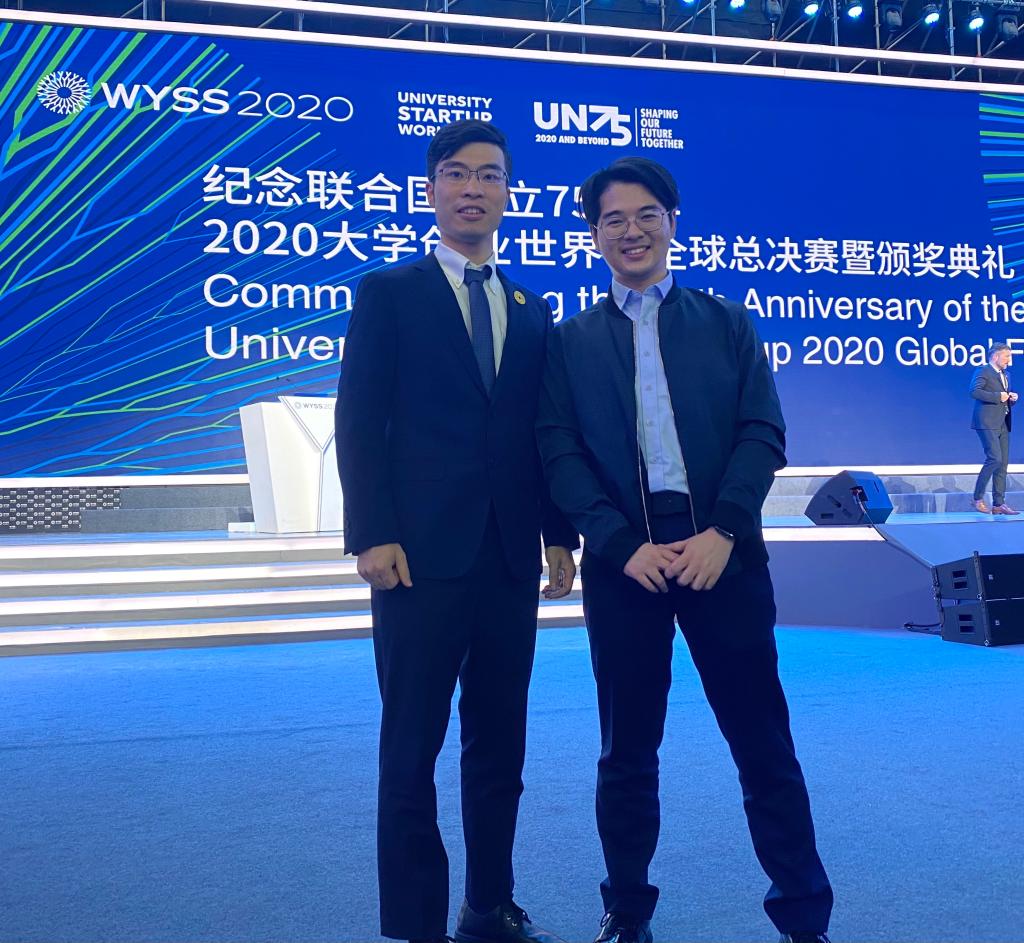The 2020 University Startup World Cup (USWC) Global Final was a significant event at the World Young Scientist Summit (WYSS) 2020. Held in Wenzhou, Zhejiang province from the 17th to the 19th of October, a team led by Jintao Meng, a 2017 Master student from the School of Materials Science and Engineering at HUST, won second place in the early stage heat of the Smart City Category with their innovative project, the ‘World’s First Stirred Self-stratified Battery’. The winning team worked under the guidance of Associate Professor Yue Shen and Professor Yunhui Huang from HUST’s School of Materials Science and Engineering, as well as Professor Ping Wei from HUST’s School of Economics.

(Left: Jintao Meng)
Dedicated to tackling the worldwide issue of energy storage, the team, consisting of 10 members from HUST, Wuhan University (WHU) and Hunan University (HNU), spent three years (from 2017 – 2020) developing the world's first stirred self-stratified battery, which has the benefits of ultra-high safety, ultra-low cost, long life and recycling ability. The team’s outstanding performance and their achievement in their research was highly commended by the international judges.
USWC was initiated by Venture Cup Denmark, a Nordic not-for-profit association of Danish universities. A leading Innovation & Entrepreneurship competition joined by universities, students and startups around the world, USWC’s vision is to build a global innovation and startup network involving governments, universities, students and enterprises to promote the development of innovations and startups of young university students across the world. Supporting university Innovation & Entrepreneurship Internationalization USWC inspires more researchers, young scientists and university students to join together for a better future.
USWC 2020 is under the theme "Innovation, Sustainable Business and the Future We want". Since its official launch, the competition’s organizers received a total of 4,131 startup applications, involving nearly 2,000 universities covering 71 countries, with 1,446 projects coming from China alone. Following the near 5-month competition, the winners within the eight categories were selected for the global final. Overseen by the China Association for Science and Technology and The People's Government of Zhejiang Province, the global final was sponsored by Zhejiang Association for Science and Technology, Wenzhou Municipal People's Government and Venture Cup Denmark.
Written by: Ziyun Meng
Edited by: Can Shi, Andrew, Yumeng Peng
Sources: School of Materials Science and Engineering
